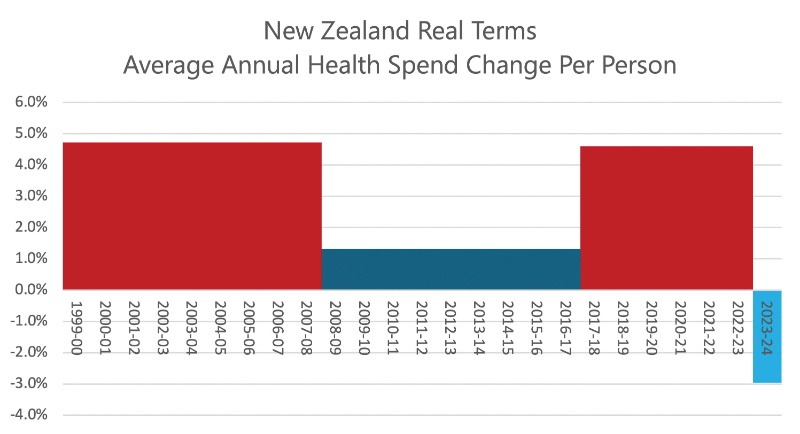$1.2 Million Grant Announced To Assist Catchment Restoration Initiative
TECT has recently approved $1.2 million worth of funding over the next three years to support Wai Kokopu Inc., a community catchment restoration project focusing on Te Waihī estuary and associated Pongakawa, Wharere, Punene and Kai Kokopu river systems.
Te Waihi estuary is in a degraded condition and it is now considered one of the five most polluted estuaries in New Zealand.
Initial estimates are that it requires substantial (up to 70%) reductions in nitrogen, phosphorus, sediment and E. coli in order to restore it to ‘moderate health’.
Wai Kokopu Inc. and Bay of Plenty Regional Council (BOPRC) share the goal of improving the health of Waihī Estuary and its catchment by substantially reducing contaminant loads from commercial land use.
Wai Kōkopu Incorporated is a community-driven governance group that connects, informs and lobbies agencies, organisations, industry and landowners towards systems and land-use change required to achieve the contaminant reduction targets necessary to return Waihī Estuary to a moderately healthy state.
It is seeking collaborative support from appropriate iwi/hapū representation at governance and operational levels with relevant guidance from the primary sector groups, local authorities and other community care groups.
A key strategy is to encourage large-scale native retirement of riparian corridors, wetlands and steep erosion-prone land to mitigate sediment, phosphorus and E.coli. runoff into the receiving waterways.
TECT’s substantial grant will help Wai Kōkopu get the community actively involved in planting and restoration efforts including weed and pest control.
“It is fabulous to have this support for landowners who have the attitude of doing the right thing. With cumulative effects of climate volatility, biodiversity loss and enrichment of receiving water bodies adding to the pressure on farm systems, it is a critical time for both landowners, and communities to be working shoulder to shoulder. The support from TECT will enhance this,” explains Group Project Manager Alison Dewes.
Wai Kōkopu is hugely appreciative of the $1.2 million grant. TECT generous assistance will complement BayTrust’s funding, the regional council and the Government’s one billion trees programme, and other funding sources that are available to help farmers retire vulnerable land near waterways.
“It’s not cheap – it costs around $10,000 to $15,000 a hectare to retire land and put it into native plantings and do the necessary pest and weed control to maintain it,” Dewes explains.
Te Waihī estuary catchment comprises 34,000ha in total and runs from the mountains just below the Rotorua’s Lakes to the coast at Pukehina.
The catchment has around 80 dairy farms, 220 orchards, and 50 drystock properties, along with forestry, and rural communities.
Dewes says support for the project is high as people recognise that something must be done to improve water quality and the environment.
“We are targeting in three years to have Environmental Plans in place with landowners to retire 500ha. Wai Kokopu will provide coordination and support to organise contractors, plant supply and funding.
“We will also guide landowners as to what environmentally sensitive areas should be retired from pastoral farming as part of their land environmental planning process.
“This will include analysing the economic impact of such alongside comparative returns from forestry and carbon farming. This will coincide with the requirement for farmers to have GHG budgets and a plan to offset their emissions.
“Retirement of marginal land is key to achieving replenishment of the whenua, and receiving wai, and the overall community desire for cleaner and healthier waterways.”
“Landowners should be taking advantage of the generous funding available through BOPRC and Wai Kokopu to assist retirement of sensitive land as they begin to implement their land environmental plans.
“The win-win of this approach is that it also coincides with the requirement for farmers to have greenhouse gas budgets done and work out how they will sequester carbon for offsetting, if it is required in some cases.
“This is all working towards cumulative benefits for both farmers, their business performance, the replenishment of the whenua, and receiving wai, and the overall community desire for cleaner and healthier waterways.”
People who are keen to get involved in upcoming planting and restoration projects can sign up to become a member of Wai Kōkopu online at www.wai-kokopu.org.nz and follow the group’s Facebook page for updates.


 Gordon Campbell: On The Americanising Of NZ’s Public Health System
Gordon Campbell: On The Americanising Of NZ’s Public Health System Rio Tinto & NZAS: Archaeological Project Underway From Historic Excavations At Tiwai Point
Rio Tinto & NZAS: Archaeological Project Underway From Historic Excavations At Tiwai Point New Zealand Deerstalkers Association: NZDA Urges Hunters To Prioritise Safety This Roar Season
New Zealand Deerstalkers Association: NZDA Urges Hunters To Prioritise Safety This Roar Season PSA: 1000 Days Since Landmark Pay Equity Deal Expired - Workers Losing $145 A Week
PSA: 1000 Days Since Landmark Pay Equity Deal Expired - Workers Losing $145 A Week Grace Tinetali-Fiavaai, RNZ: Widow Of Fa'anānā Efeso Collins Seeks Inquiry Into His Death - 'Unanswered Questions'
Grace Tinetali-Fiavaai, RNZ: Widow Of Fa'anānā Efeso Collins Seeks Inquiry Into His Death - 'Unanswered Questions' Te Pāti Māori: Te Pāti Māori Call For Mandatory Police Body Cameras
Te Pāti Māori: Te Pāti Māori Call For Mandatory Police Body Cameras NZ First Party: NZ First Introduces the “Conscience Acts Referendums Bill”
NZ First Party: NZ First Introduces the “Conscience Acts Referendums Bill”


